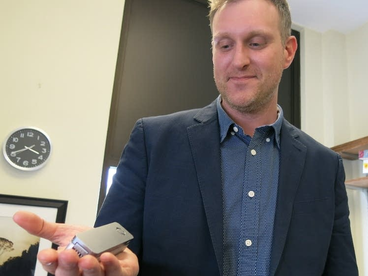Chronic Wasting Disease initiative

Chronic Wasting Disease (CWD) is a contagious, neurological disease affecting deer, elk, and moose. It is caused by a misfolded protein in the nervous system, leading to brain degeneration and the appearance of abnormal behavior, weight loss, loss of bodily functions, and death. A research team in the College of Veterinary Medicine, led by VBS Assistant Professor Peter Larsen and his colleagues Engineering Professor Sang-Hyun Oh, VBS Professor Pamela Skinner, and Assistant Professor Davis Seelig in the Department of Veterinary Clinical Sciences, is proposing to use nanotechnology to develop a novel detection device for CWD prion proteins that can test body fluid samples from deer that are collected in the field.
The College of Veterinary Medicine breaks down the researchers involved in this projects as well as goals needed to achieve funding in "UMN veterinary scientists propose faster Chronic Wasting Disease diagnostic test."
Poultry health research

What determines the susceptibility and resistance of poultry to infectious disease in the wild or on the farm?" We are addressing this key question through:
- Characterizing critical genetic and environmental factors and the impact of stress and nutrition on poultry health.
- Investigating the role of the gut microbial community in supporting healthy growth and preventing antimicrobial drug resistance.
- Sharing our research findings with farmers, scientists, and citizens.
- Developing and promoting innovative solutions to offer poultry farmers new cures and preventative strategies.
- Fighting to keep poultry products safe and nutritious.
Our work informs the surveillance and prevention of infectious disease in pathogen-free poultry systems across the nation. Industry funding to the University of Minnesota Poultry Health Research supports unbiased, objective investigations, the results from which are freely available in the public domain.

The Pomeroy Chair in Avian Health was the first endowed chair in the College as well as the first chair in veterinary poultry health in the nation. It was established in 1985 to honor the legacy of Dr. Benjamin S. Pomeroy, a veterinary microbiologist and long-time faculty member in this department whose discoveries contributed to the control and eradication of several major diseases affecting turkeys.